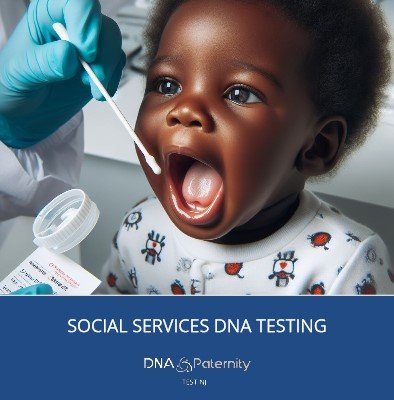
Does Social Services perform paternity testing in NJ?
No, Social Services itself does not provide DNA paternity testing services in New Jersey. However, Child Services can assist unmarried couples who disagree about the paternity of a child by providing information and referrals to appropriate testing facilities.
Can Social Services force a DNA test?
No, Social Services cannot force DNA testing to be performed. They can, however, assist with the process of filing a paternity petition. If the petition is accepted and a court order is issued, the judge will request paternity testing be performed to prove a biological relationship.
How do you establish paternity in NJ?
Below is a brief overview of how paternity establishment in New Jersey works:
- Request Certificate of Parentage (COP): The putative father signs a COP form, available from the hospital where the child was born or from the local child support agency.
- File the COP with the State: Submit the signed form to the New Jersey Department of Health and Senior Services.
- Establish Paternity: Once the form is filed, paternity is legally established, and the father’s name is added to the child’s birth certificate.
- Obtain Child Support: If needed, the mother can file a child support application with the New Jersey Department of Human Services, Division of Family Development.
- Establish Visitation and Custody: For unmarried parents, the father must file a complaint for custody and/or visitation with the family court in the county where the child resides.
Does establishing paternity give fathers rights?
Yes, establishing paternity in New Jersey grants the biological father certain rights and responsibilities. These typically include:
- The right to seek custody or visitation
- The responsibility to provide financial support
- The right to make decisions about the child’s upbringing
- The child’s right to inherit from the father
How to get a paternity test through court?
To obtain a paternity test through court:
- File a paternity petition with the Family Court in the appropriate county.
- Attend a court hearing where a judge will review the case.
- If deemed necessary, the judge will issue a court order for paternity testing.
- Follow the court’s instructions for obtaining the test at an approved facility.
- Return to court with the results for a final determination of paternity.
Non-court-ordered paternity testing
A paternity test can be performed without a court order, and the results will be recognized by family courts in New Jersey and throughout the United States.
Please note, all DNA testing services we provide are performed by our partner AABB accredited DNA laboratory. Labs that hold this accreditation are recognized by family courts.
To schedule an appointment, call 973-609-5102 to get started today.

Social Services DNA Testing